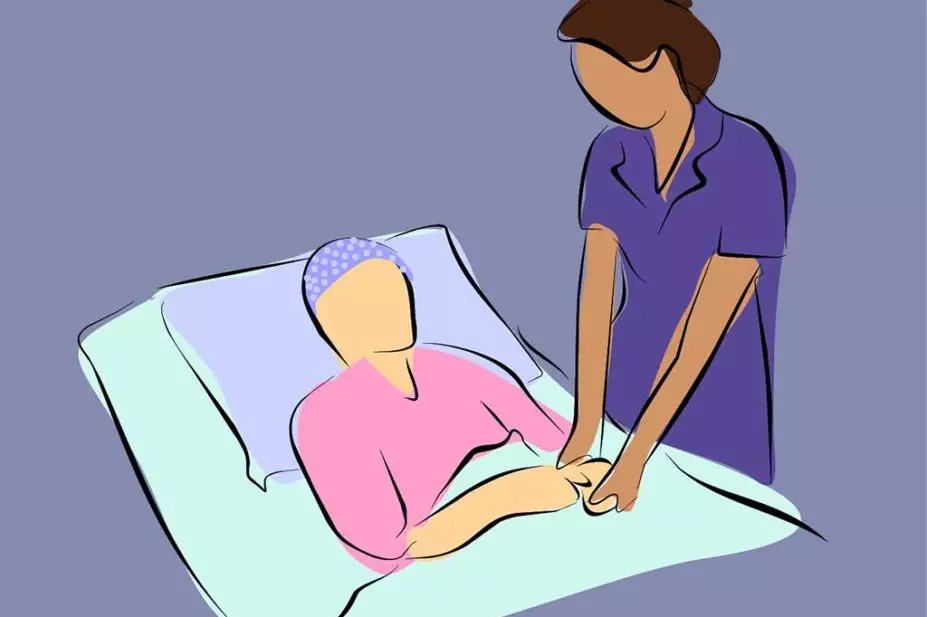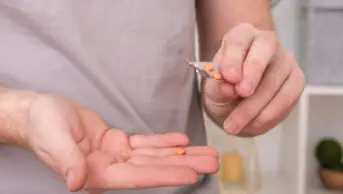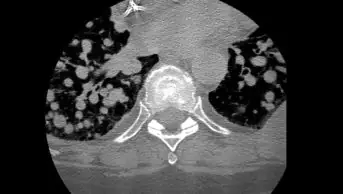
Mclean/Shutterstock.com
A diagnosis of incurable cancer is devastating, but too often the tragedy is compounded by limited or delayed access to effective treatments. The National Institute for Health and Care Excellence (NICE) must ensure treatments represent value for money before market authorisation[1]. However, there can be a 12-year delay between clinical trials, licensing and positive drug guidance[2,3].
Patients struggle to reconcile the fact they have a terminal illness while there are inaccessible experimental drugs offering potential life extension; most will deteriorate before such interventions reach the market. Many patients attempt clinical trial enrolment for experimental medication access[4]. However, 16% of surveyed patients with cancer were denied or delayed access, while 50% attempting clinical trial access were unable to owing to screening or operational issues[5,6].
Some cancer drugs awaiting NICE appraisal can be referred for early usage for up to two years through the Cancer Drugs Fund. Although interim access is available for some, the definition and scope by NICE is narrow and can be withdrawn. Therefore, patients with cancer who have no satisfactory treatment options present an unmet medical need.
Compassionate medicine schemes
Compassionate medicine schemes have emerged where no clinical trials or commissioned alternative exists. They are voluntary and run in tandem with existing licensing. Indeed, through these schemes, it is possible to use real-world data to inform future NICE appraisal and, in principle, they may run until market authorisation is granted[7]. The regulations in this area are complex, and there are multiple frameworks to enable access to compassionate medicines (See Figure). However, it should be recognised that all compassionate medicines are unlicensed or used off-label, and, therefore, safety and efficacy information is limited.
Commissioning considerations
There are serious problems with the way that compassionate access currently operates in the UK.
Access is postcode based, since not every hospital allows enrolment. In fact, a statement by the North-West England Specialised Commissioning team recommended that NHS trusts did not take part in Free of Charge (FOC) medicine schemes as there is a lack of equity in the way they are provided, and some drug manufacturers are unwilling to supply further medicines under the scheme after a favourable NICE appraisal, which can be disruptive for patients.
The Royal Pharmaceutical Society has laid out principles for compassionate use of medicines, but often schemes lack standardisation, and the workload to assess, manage and administer them varies[8]. Pharmaceutical companies may benefit through the acquisition of “real-life data”; however, in practice, the amount of data collected will be less than a dedicated clinical trial.
Any potential medical negligence from unapproved medications … would fall upon the NHS trust rather than the pharmaceutical company
Compassionate schemes risk undermining evidence-based pathways and guidelines by providing a treatment outside of NICE recommendations. Unlike licensed medicines, the safety, efficacy and cost-effectiveness of some compassionate schemes may not have been considered by regulators[9]. If a treatment is used in an indication not submitted to NICE, they are unable to issue guidance and commissioners will not support funding.
NHS legal advice states that the Government Master Indemnity Agreement does not relate to medications[10]. Therefore, any potential medical negligence from unapproved medications with any resulting reputational, financial and legal risk would fall upon the NHS trust rather than pharmaceutical company[11].
Ethical considerations
There are conflicting ethical arguments for compassionate use. Compassionate medication enables patient autonomy and oncology patients are often “willing to try anything”. More than 90% of patients would participate in an experimental study with 10% mortality[12]. However, autonomy can be limited by information asymmetry between clinician and patient, making patients with terminal cancer potentially vulnerable. Therefore, such choice would need to be made freely without therapeutic optimism[13,14].
It is possible that compassionate usage provides patients beneficence through life extension. This can be countered by the risk of no benefit or maleficence. A further diminished lifespan is tragic in a terminal patient where there is an ethical obligation to maximise benefit and minimise harm[15]. Whichever approach is taken, balanced information must be provided to allow informed consent.
Our experience
The Christie NHS Foundation Trust, Manchester, is one of the largest cancer treatment centres in Europe, with an active compassionate drug programme for multiple cancer sites. To understand the impact of these schemes on patients, we undertook a retrospective audit of 27 patients with a diagnosis of metastatic colorectal cancer (mCRC) who received compassionate medication between 2018 and 2020.
We analysed 17 mutant BRAF (mBRAF) patients treated with triplet therapy (binimetinib, encorafenib and cetuximab) — as defined by the BEACON trial, prior to its recent closure following NICE approval — and 10 MSI-High patients on compassionate nivolumab immunotherapy. The results demonstrated that setting up a compassionate process is lengthy and resource intensive. The average set-up time was variable but could take at least a week in pharmacy time per drug or regimen.
Clinically, most patients were fit (88% PS ≤1 and 50% had no known comorbidities), and this represented third-line therapy for most (62%), in a cancer setting with limited or no treatment options and survival less than four to five months. There was a wide geographical demand for treatment as 67% of patients were referred from outside the hospital and >30% of patients lived more than 20 miles away.
Data provide an example of compassionate usage providing value to the patient and taxpayer
Of the patients, 19% were unable to start treatment owing to clinical deterioration. Of patients who started treatment, 5% passed away within a month. The mean number of cycles given was 10 (range 1–38) with a mean treatment duration of 120 days (range 15–317 days) on the triplet combination and 205 days on nivolumab (range 1–663 days). This included 1 patient who received 38 cycles of nivolumab and 3 patients with ongoing responses at the time of data collection.
These data provide an example of compassionate usage providing value to the patient and taxpayer. Many patients received drugs that were later given positive NICE guidance and remained on this regimen for considerable time, suggesting a moral gain and a survival advantage over best supportive care.
For example, in the summer of 2020, what had by then become the BEACON study doublet (encorafenib and cetuximab) received interim NHS England (NHSE) funding as a less immunosuppressive option to conventional chemotherapy during the COVID-19 pandemic[16]. By this time, our trust had treated 17 patients and was able to provide access during a “treatment hiatus”[17]. Since January 2021, this combination has been commissioned by NHSE after NICE approval.
Likewise, we treated a 10 MSI-High mCRC patients with compassionate nivolumab via a FOC scheme more than one year before it was routinely made available by NHSE commissioning in June 2021[18,19]. These patients would otherwise have missed out on effective therapy, and those who respond to treatment can do so for significant periods of time; often improving quality of life and reducing toxicity.
Conclusion
Compassionate use exists as drug design and testing are lengthy processes and there is excessive cost and bureaucracy in trial management.
However, we believe that pharmaceutical partnership with expanded access experts, modified clinical trials, accelerated approval and reduction in administration processes could mean wider compassionate medicines usage in the NHS.
In addition, NICE should appraise drugs before licence approval and hold earlier price negotiations. Limited licenses could be based on smaller, targeted phase II studies to speed up the path of new drugs to market. Equally, single-patient trials, such as “N-of-1”, allow individuals to receive experimental medication, but data can be gathered[20].
The wider pharmacy community has an essential role to ensure patients with cancer have compassionate drug access where appropriate. Wider pharmacy awareness is needed, and a deeper understanding of the multiple steps required in set-up and the capacity required to supply and administer compassionate drugs is essential. Further national guidance and engagement with drug manufacturers is desperately needed to support pharmacy teams and streamline the process to ensure patient treatment pathways are optimised.
Financial and organisational costs may never truly outweigh the suffering patients undergo, and the value of hope cannot be overstated
Finally, companies need to consider ethical ways to ensure fairness in drug distribution. In the United States, compassionate use advisory committees have been established using pharmacists, medical experts, bioethicists and patient representatives. These decisions are case based, and approvals must meet ethical and medical criteria rather than a lottery or ‘first-come, first-served’ system, capturing the nuances in patient circumstances[21–23].
Compassionate usage concerns moral arguments around autonomy and beneficence offset against equity and non-maleficence. At the heart of this, financial and organisational costs may never truly outweigh the suffering patients undergo, and the value of hope cannot be overstated. As drug development costs increase, the wider medical community must continue to debate compassionate usage. There must be a way to allow access to novel agents as soon as evidence emerges that there is a benefit. This may have financial consequences, and there is no doubt that compassionate set up is slow and complex. Although there is a fine balance, it seems morally right that patients should have that access. However, given the ongoing pressures the NHS faces in terms of increasing service demand and an already overstretched workforce, there are significant challenges ahead for compassionate medicine schemes to work successfully.
- 1Prescribing Costs in Hospitals and the Community 2018–2019. NHS Digital. 2019.https://digital.nhs.uk/data-and-information/publications/statistical/prescribing-costs-in-hospitals-and-the-community/2018-2019 (accessed Nov 2022).
- 2How long a new drug takes to go through clinical trials. Cancer Research UK. 2022.https://www.cancerresearchuk.org/find-a-clinical-trial/how-clinical-trials-are-planned-and-organised/how-long-it-takes-for-a-new-drug-to-go-through-clinical-trials (accessed Oct 2022).
- 3Casson SG, Ruiz FJ, Miners A. How long has NICE taken to produce Technology Appraisal guidance? A retrospective study to estimate predictors of time to guidance. BMJ Open. 2013;3:e001870. doi:10.1136/bmjopen-2012-001870
- 4Raus K. An analysis of common ethical justifications for compassionate use programs for experimental drugs. BMC Med Ethics. 2016;17. doi:10.1186/s12910-016-0145-x
- 5From Patent to Patient. The Institute of Cancer Research. 2018.https://www.icr.ac.uk/media/docs/default-source/default-document-library/from-patent-to-patient.pdf?sfvrsn=8fa95f69_4 (accessed Nov 2022).
- 6Sharpe E, Hoey R, Yap C, et al. From patent to patient: analysing access to innovative cancer drugs. Drug Discovery Today. 2020;25:1561–8. doi:10.1016/j.drudis.2020.01.004
- 7Watt J. EXPANDED ACCESS / COMPASSIONATE USE / NAMED PATIENT SUPPLY PROGRAMMES FOR UNLICENSED MEDICINES – GUIDANCE NOTES . NHS Greater Glasgow and Clyde. 2014.https://ggcmedicines.org.uk/media/uploads/policies/section_9/9.3_compassionate_access_to_ulm_-_1502.pdf (accessed Nov 2022).
- 8Medicines Optimisation: Helping patients to make the most of medicines. Royal Pharmaceutical Society. 2013.https://www.rpharms.com/Portals/0/RPS document library/Open access/Policy/helping-patients-make-the-most-of-their-medicines.pdf (accessed Nov 2022).
- 9Free of charge (FOC) medicines schemes. Specialist Pharmacy Service. 2020.https://www.sps.nhs.uk/wp-content/uploads/2018/07/FOC-medicine-scheme-policy-v-3.0-Final.pdf#:~:text=Free%20of%20charge%20(FOC)%20medicines%20schemes%20Advice.%202020;30%E2%80%9310 (accessed Nov 2022).
- 10Master indemnity agreement: approved suppliers. Department of Health and Social Care. 2022.https://www.gov.uk/government/publications/master-indemnity-agreement-mia (accessed Nov 2022).
- 11Borysowski J, Górski A. Compassionate use of unauthorized drugs: Legal regulations and ethical challenges. European Journal of Internal Medicine. 2019;65:12–6. doi:10.1016/j.ejim.2019.04.008
- 12Agrawal M, Grady C, Fairclough DL, et al. Patients’ Decision-Making Process Regarding Participation in Phase I Oncology Research. JCO. 2006;24:4479–84. doi:10.1200/jco.2006.06.0269
- 13Miller FG, Joffe S. Benefit in phase 1 oncology trials: therapeutic misconception or reasonable treatment option? Clinical Trials. 2008;5:617–23. doi:10.1177/1740774508097576
- 14Darrow JJ, Sarpatwari A, Avorn J, et al. Practical, Legal, and Ethical Issues in Expanded Access to Investigational Drugs. N Engl J Med. 2015;372:279–86. doi:10.1056/nejmhle1409465
- 15Rosenblatt M, Kuhlik B. Principles and Challenges in Access to Experimental Medicines. JAMA. 2015;313:2023. doi:10.1001/jama.2015.4135
- 16Encorafenib plus cetuximab for previously treated BRAF V600E mutation-positive metastatic colorectal cancer. National Institute for Health and Care Excellence. 2021.https://www.nice.org.uk/guidance/ta668 (accessed Nov 2022).
- 17COVID-19 rapid guideline: delivery of systemic anticancer treatments. National Institute for Health and Care Excellence. 2022.https://www.nice.org.uk/guidance/ng161 (accessed Nov 2022).
- 18Diaz LA Jr, Shiu K-K, Kim T-W, et al. Pembrolizumab versus chemotherapy for microsatellite instability-high or mismatch repair-deficient metastatic colorectal cancer (KEYNOTE-177): final analysis of a randomised, open-label, phase 3 study. The Lancet Oncology. 2022;23:659–70. doi:10.1016/s1470-2045(22)00197-8
- 19Nivolumab with ipilimumab for previously treated metastatic colorectal cancer with high microsatellite instability or mismatch repair deficiency. National Institute for Health and Care Excellence. 2021.https://www.nice.org.uk/guidance/ta716 (accessed Nov 2022).
- 20Lillie EO, Patay B, Diamant J, et al. The n-of-1 clinical trial: the ultimate strategy for individualizing medicine? Personalized Medicine. 2011;8:161–73. doi:10.2217/pme.11.7
- 21Zilber C. Ethical Considerations When Prescribing for Friends and Family. Psychiatric News. 2016.https://psychnews.psychiatryonline.org/doi/full/10.1176/appi.pn.2016.3a11 (accessed Nov 2022).
- 22Caplan AL, Ray A. The Ethical Challenges of Compassionate Use. JAMA. 2016;315:979. doi:10.1001/jama.2016.0416
- 23Caplan AL, Teagarden JR, Kearns L, et al. Fair, just and compassionate: A pilot for making allocation decisions for patients requesting experimental drugs outside of clinical trials. J Med Ethics. 2018;44:761–7. doi:10.1136/medethics-2016-103917


